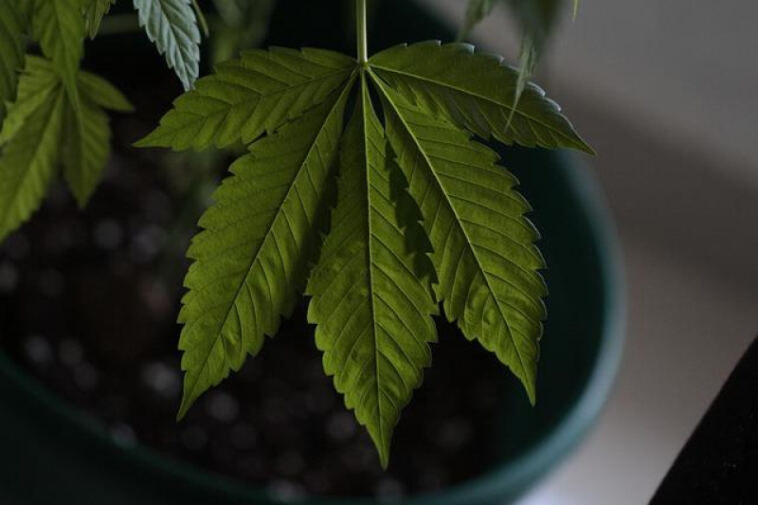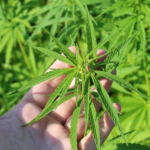- Like
- SHARE
- Digg
- Del
- Tumblr
- VKontakte
- Flattr
- Buffer
- Love This
- Save
- Odnoklassniki
- Meneame
- Blogger
- Amazon
- Yahoo Mail
- Gmail
- AOL
- Newsvine
- HackerNews
- Evernote
- MySpace
- Mail.ru
- Viadeo
- Line
- Comments
- Yummly
- SMS
- Viber
- Telegram
- JOIN
- Skype
- Facebook Messenger
- Kakao
- LiveJournal
- Yammer
- Edgar
- Fintel
- Mix
- Instapaper
- Copy Link
In a world increasingly attuned to the effects of human activity on the environment, the cultivation of cannabis has emerged as a topic of growing importance. From water usage and energy consumption to waste management and pesticide use, the impact of cannabis cultivation on the environment is a complex and multifaceted issue. In this article, we delve into the world of eco-conscious cannabis cultivation to explore the ways in which this booming industry is confronting and responding to its environmental footprint.
Understanding the Environmental Impact of Cannabis Cultivation
When it comes to cannabis cultivation, it’s essential to consider the environmental impact of the process. From water usage to pesticides, the way cannabis is grown can have a significant effect on the ecosystem. By understanding these impacts, we can work towards more sustainable and eco-conscious cultivation practices.
One major concern with cannabis cultivation is water usage. Cannabis plants require a significant amount of water to grow, and in areas where water scarcity is already an issue, this can put a strain on local water resources. Implementing water-efficient irrigation systems, such as drip irrigation, can help reduce the overall water consumption of cannabis cultivation.
Additionally, the use of pesticides and fertilizers in cannabis cultivation can have negative effects on the environment. These chemicals can leach into the soil and waterways, harming local wildlife and ecosystems. Utilizing organic and sustainable growing practices, such as companion planting and natural pest control methods, can help minimize the environmental impact of cannabis cultivation.
Challenges Faced by the Industry in Maintaining Sustainability
One of the major challenges faced by the cannabis industry in maintaining sustainability is the significant environmental impact of cannabis cultivation. The process of growing cannabis can have detrimental effects on the environment if not managed responsibly. Some of the key issues include:
- Excessive water usage: Cannabis plants require a large amount of water to grow, leading to potential strain on local water resources.
- Energy consumption: Indoor cultivation facilities often rely on artificial lighting, heating, and cooling systems, which can contribute to high energy consumption and greenhouse gas emissions.
- Chemical runoff: The use of pesticides and fertilizers in cannabis cultivation can lead to chemical runoff that contaminates soil and water sources.
Addressing these challenges requires a commitment to sustainability practices within the industry. By implementing eco-friendly cultivation methods and adopting environmentally conscious practices, cannabis businesses can reduce their impact on the environment and work towards a more sustainable future.
In order to promote sustainable cannabis cultivation, industry stakeholders must prioritize initiatives such as:
- Water conservation techniques, such as drip irrigation systems and rainwater harvesting.
- Utilization of renewable energy sources, like solar panels and wind turbines, to power cultivation facilities.
- Implementation of organic farming practices to reduce reliance on synthetic pesticides and fertilizers.
Exploring Eco-Friendly Practices in Cannabis Cultivation
As the cannabis industry continues to thrive, it is crucial for cultivators to prioritize eco-friendly practices to minimize the impact on the environment. By implementing sustainable cultivation methods, growers can reduce their carbon footprint and contribute to a healthier planet.
One eco-conscious approach to cannabis cultivation is utilizing organic farming techniques. By avoiding the use of synthetic pesticides and fertilizers, growers can protect the soil and water quality while also producing cleaner, chemical-free cannabis products. Additionally, organic farming promotes biodiversity and benefits pollinators, creating a more sustainable ecosystem.
Another key aspect of eco-friendly cannabis cultivation is water conservation. Implementing efficient irrigation systems, such as drip irrigation or rainwater harvesting, can minimize water waste and reduce the strain on local water sources. By conserving water, growers can not only lower their operational costs but also help preserve this precious resource for future generations.
Recommendations for Minimizing Environmental Footprint
In the world of cannabis cultivation, it’s essential to consider the environmental impact of your practices. By making conscious choices, you can reduce your ecological footprint and contribute to a healthier planet. Here are some recommendations for minimizing your environmental impact:
- Opt for Sustainable Energy Sources: Consider using renewable energy sources like solar or wind power to reduce greenhouse gas emissions.
- Practice Water Conservation: Implement water-saving techniques such as drip irrigation and rainwater harvesting to minimize water usage.
- Utilize Organic Pest Control: Avoid harmful chemicals by using natural pest control methods like beneficial insects and companion planting.
By incorporating these eco-friendly practices into your cannabis cultivation routine, you can play a part in protecting the environment for future generations. Remember, every small step counts towards a more sustainable future!
Building a Greener Future for the Cannabis Industry
As the cannabis industry continues to grow at a rapid pace, it is essential to consider the environmental impact of cultivation practices. Sustainable and eco-friendly approaches to cannabis cultivation are crucial for building a greener future. From energy consumption to water usage, every aspect of the cultivation process can have an effect on the environment.
One of the key areas of concern is the use of pesticides and fertilizers in cannabis cultivation. These chemicals can leach into the soil and water supply, causing harm to the surrounding ecosystem. By adopting organic growing methods and using natural pest control techniques, growers can minimize their environmental footprint and create a healthier product for consumers.
Utilizing renewable energy sources such as solar power can significantly reduce the carbon footprint of cannabis cultivation operations. Implementing energy-efficient lighting systems and HVAC equipment can also help to lower energy consumption and operating costs. By making these eco-conscious choices, the cannabis industry can lead the way in sustainable agriculture practices.
Q&A
Q: What is the environmental impact of cannabis cultivation?
A: Cannabis cultivation can have various environmental impacts, including water usage, energy consumption, and deforestation.
Q: How does water usage contribute to the environmental impact of cannabis cultivation?
A: Cannabis plants require a significant amount of water, which can strain local water sources and impact aquatic ecosystems.
Q: What role does energy consumption play in the environmental impact of cannabis cultivation?
A: Indoor cannabis cultivation relies heavily on artificial lighting, heating, and cooling systems, leading to high energy consumption and greenhouse gas emissions.
Q: How does deforestation factor into the environmental impact of cannabis cultivation?
A: Illegal cannabis cultivation operations often clear large tracts of land, leading to deforestation and habitat destruction.
Q: What steps can be taken to mitigate the environmental impact of cannabis cultivation?
A: Implementing sustainable growing practices, utilizing renewable energy sources, and supporting eco-friendly cultivation methods can help reduce the environmental impact of cannabis cultivation.
Q: How can consumers support eco-conscious cannabis cultivation?
A: Consumers can choose products from reputable producers who prioritize sustainable practices, advocate for transparent labeling, and support environmental organizations working to promote eco-conscious cannabis cultivation.
Concluding Remarks
In conclusion, as the cannabis industry continues to grow, it is crucial that we prioritize environmental sustainability. By implementing eco-conscious practices in cultivation, we can mitigate the impact on our planet and ensure a brighter future for generations to come. Let us all come together to cultivate cannabis responsibly, mindful of the impact on our environment. Let’s make a difference today for a greener tomorrow.


